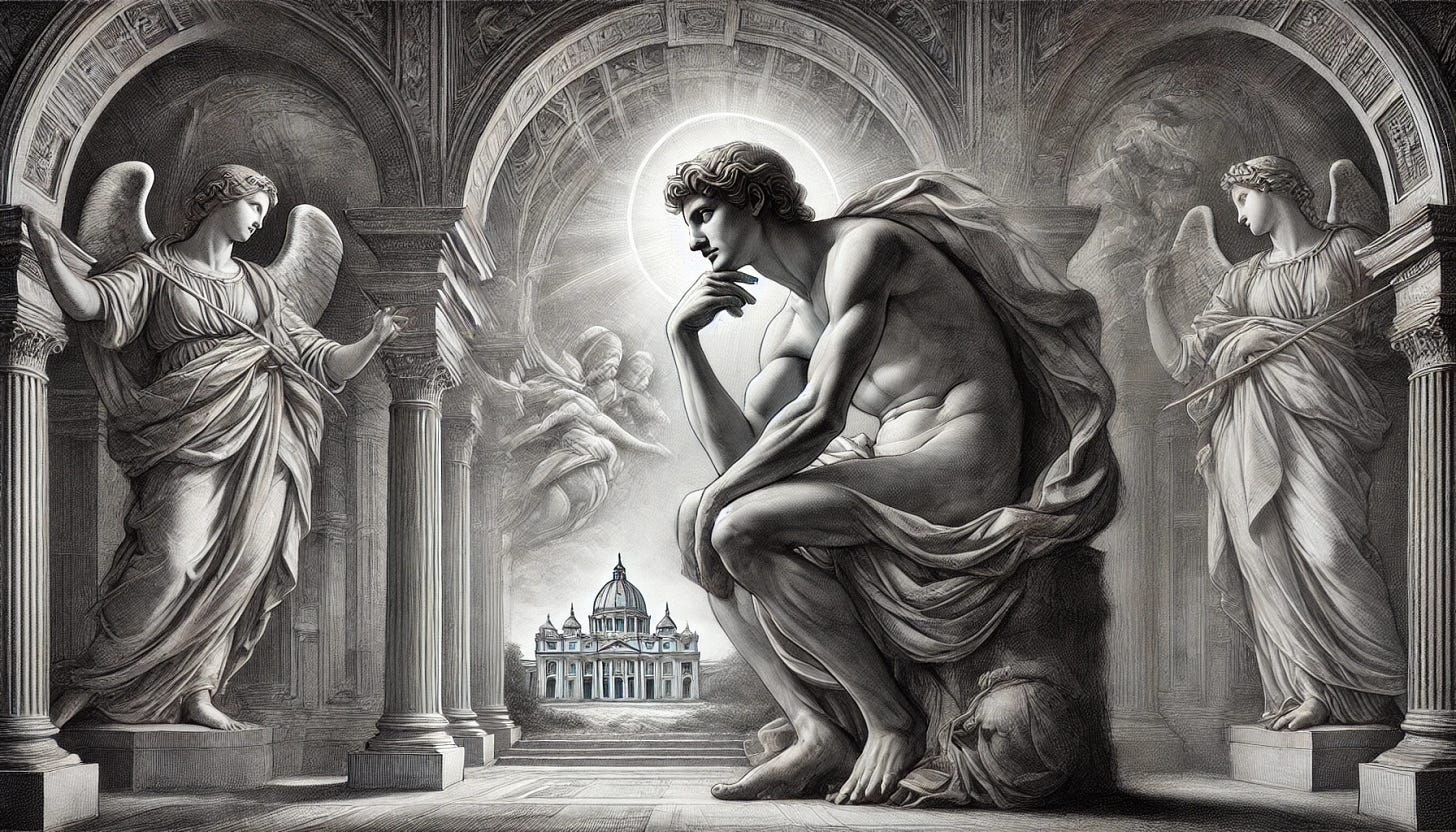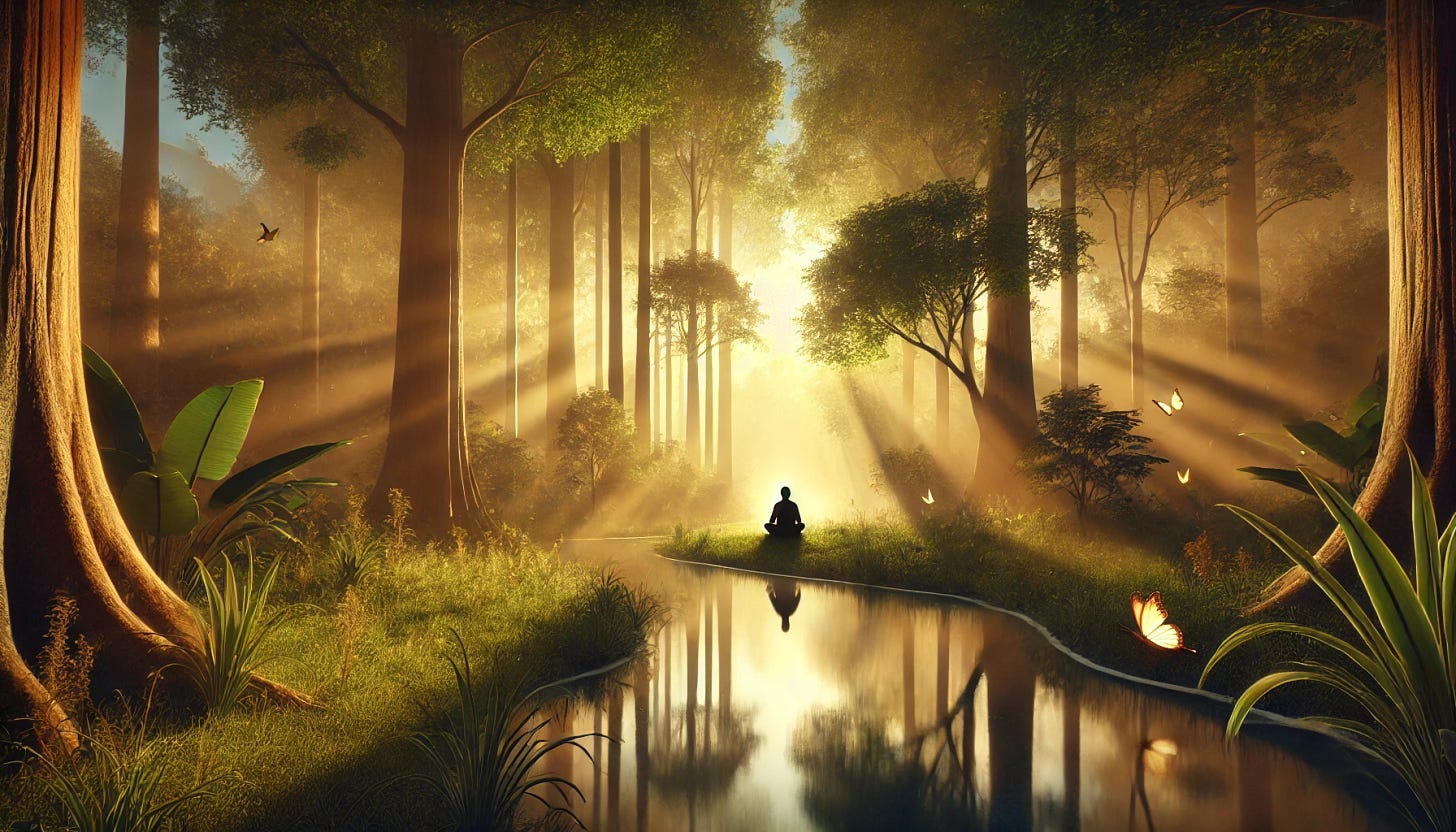"And the peace of God, which passeth all understanding, shall keep your hearts and minds through Christ Jesus." - Philippians 4:7
Yeh, yeh, I know. A Christian passage. It’s not really my bag, either. I’m not a Christian; it’s just that some of the passages hit hard if you can read them clearly.
I often get encouraged to write about peace.
I’ve heard thousands of times, ‘I want to be happy,’ but I think these statements are misguided.
Let me tell you something about trying to be happy… it’s smoke and mirrors. You’re after something else.
What you’re looking for is a sense of peace. I use the word ‘sense’ here because peacefulness is one’s nature, as I’ll prove. You can’t escape one’s nature, so sensing it is simply realising what’s always been.
It’s about negation, not affirmation. Removing illusion, not adding more of it.
Your psychological state, at any moment, does not change this reality.
"Within you there is a stillness and sanctuary to which you can retreat at any time and be yourself." - Herman Hesse
There is an intriguing correlation between happiness and peace. The difference between the two is time.
Happiness is fleeting. Neurotransmitters and hormones cause it; "feel-good" chemicals. These include dopamine, serotonin, endorphins, and oxytocin, each playing a distinct role in regulating mood and emotions.
This moment, happy.
Next moment, sad.
Peace is timeless. If you notice, thoughts arise from somewhere and go back to somewhere (don’t confuse somewhere with a place; you could say nowhere instead of somewhere if that helps). That ‘place’ is qualitatively peaceful and is ever-present; it’s always there.
Try to escape from this ‘still place’—it’s like trying to ‘escape from the present moment’. It’s impossible, and frankly, it's laughable that this has become a spiritual marketing tool.
How on earth can anyone not be in the ‘present moment’? Their mind can imagine something from another time, but that’s completely different.
‘Being lost in your head’ is paying attention to something in time, usually the past, and dwelling there. Consequently, you may feel an array of human emotions. But essentially, you’re still thinking about the past in the eternal now. It’s inescapable.
"If the mind makes no discriminations, the ten thousand things are as they are, of single essence." - Jianzhi Sengcan - (Xinxin Ming, Early Chinese Zen Poem)
The Great Way is not difficult
for those who have no preferences.
When love and hate are both absent
everything becomes clear and undisguised
….
The Way is perfect like vast space
where nothing is lacking and nothing in excess.
Indeed, it is due to our choosing to accept or reject
that we do not see the true nature of things.
Happiness requires the Ten Thousand Things. It requires the discriminatory nature of the mind. It requires ‘objective’ content.
Peace requires nothing. It’s the context derivation of content. It’s unchanging, eternal, ever-present. It’s a quality of The Great Way.
This is the nature of consciousness, and you are that.
All it takes is seeing what’s always there to be ‘the peace that passeth all understanding.’






It's along the lines of Krishnamurti's quote "I never minded what happened to me." The opposite of that would be 'road rage' for example.
Your writings invite introspection. "Peace, be still." It's very true. Peace is here the whole time, all one has to do is tap into it.
Thank you.
Thanks for this Alex, I love how you write,
What you’re looking for is a sense of peace. I use the word ‘sense’ here because peacefulness is one’s nature, as I’ll prove. You can’t escape one’s nature, so sensing it is simply realising what’s always been.
It’s about negation, not affirmation. Removing illusion, not adding more of it.
Yes we don't to bring peace it is already here.